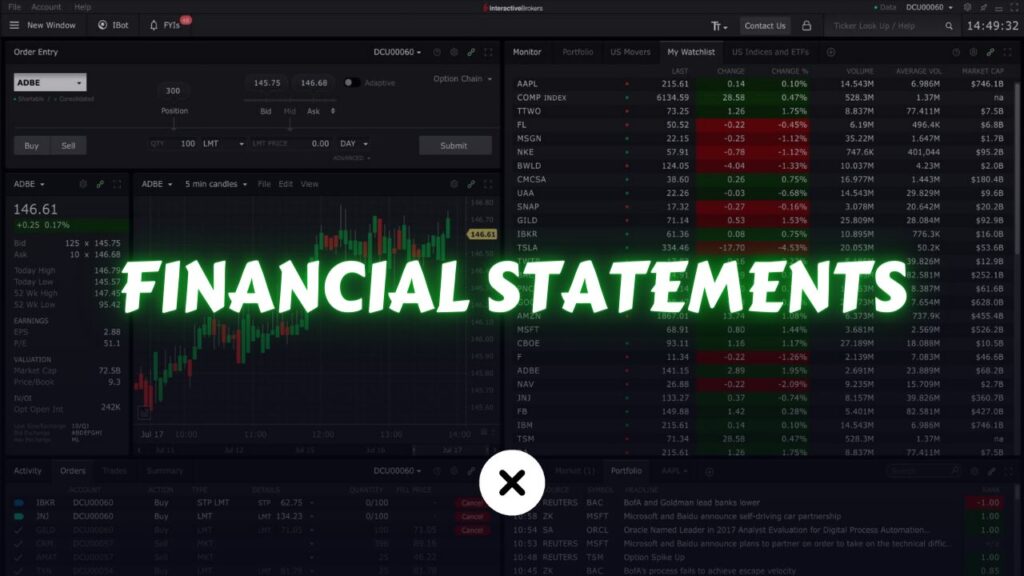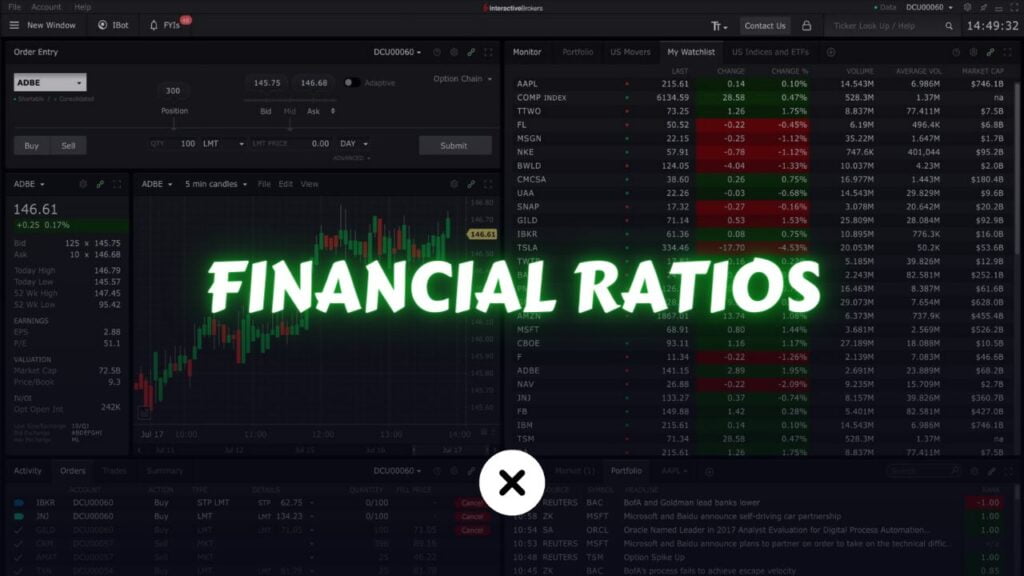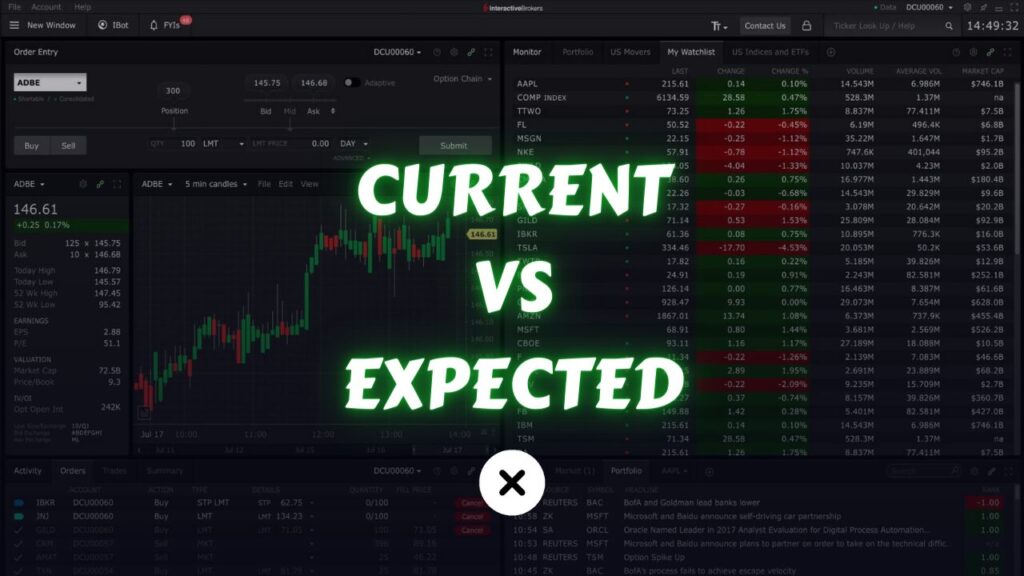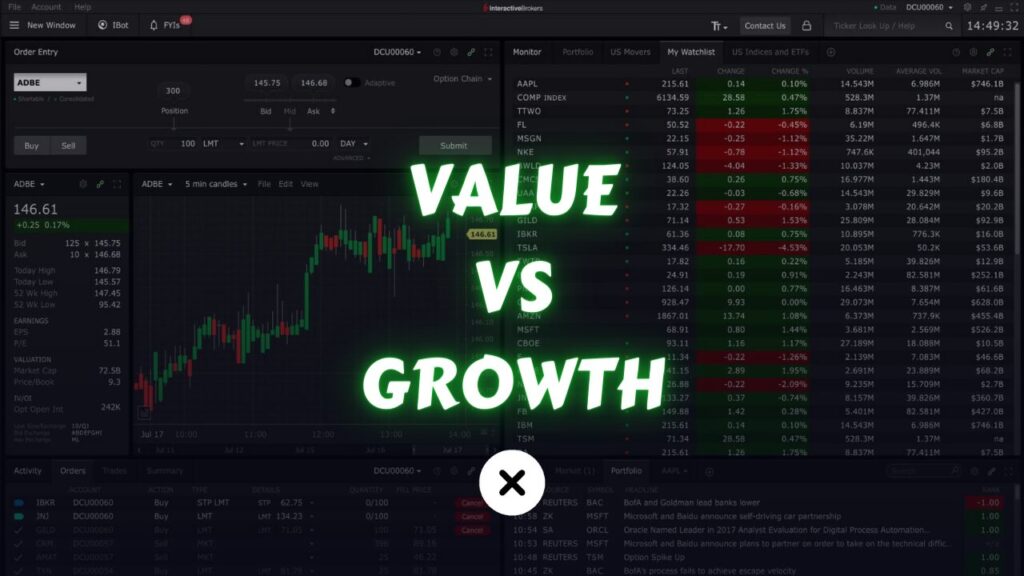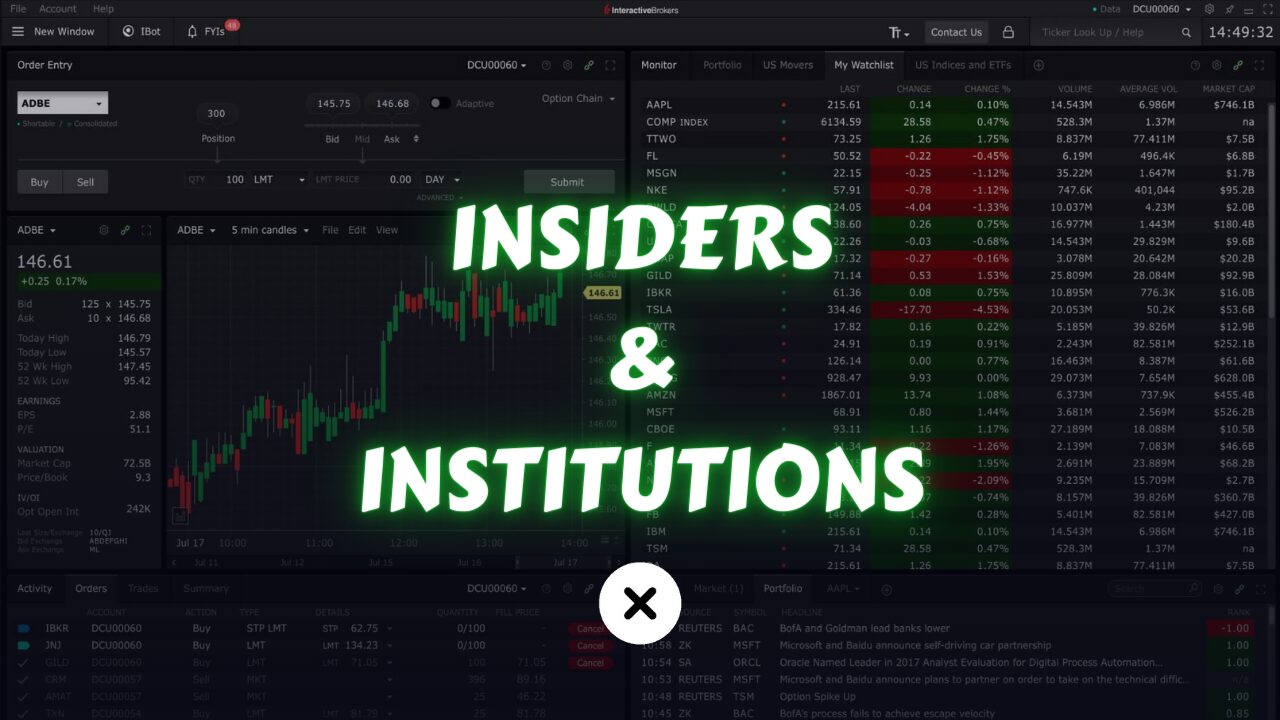
If you want to trade stocks, it’s important to understand insider and institutional ownership. These two types of ownership show who owns a big part of a company and can help investors make smart choices. In this detailed guide, we’ll look at what insider and institutional ownership mean, why they’re important, and how investors can use this info to make better decisions.
What is Insider Ownership?
Insider ownership refers to the percentage of a company’s shares that are held by its insiders, such as executives, directors, and employees who have access to non-public information about the company. It is a measure of how much ownership and control these insiders have over the organization.
Insiders have the opportunity to buy or sell shares of a company, and as individuals with intimate knowledge about the company, their actions can provide valuable insights into their outlook for the company’s future. When insiders buy or sell stocks, they are required to publicly disclose such transactions. However, it’s important to note that the sale of shares by an insider does not necessarily mean the company is performing poorly and its stock will decline.
In some cases, even if a company is doing well, insiders may choose to sell some of their shares to generate cash. For instance, if you are the CEO of a successful company and already own a substantial number of shares, you might decide to liquidate a portion of your holdings to obtain funds for personal reasons. It doesn’t imply that the company’s prospects are negative.
However, if the company’s stock price is already declining, reaching a low point, and an insider, especially a significant shareholder, sells a substantial amount of their shares, it can be seen as a meaningful signal. This action indicates that the insider, who possesses extensive knowledge about the company, doesn’t anticipate an improvement in the stock price in the future. Instead, they believe that the current price is the most opportune for them to sell. This can further contribute to a continued decline in the stock price. Therefore, if a stock is plummeting and insiders are simultaneously selling, it can be considered a negative sign for investors.
finviz provides a comprehensive section dedicated to insider trading information, allowing users to access and analyze insider transactions. Additionally, finviz offers a useful screener tool that enables users to screen and filter insider trading data based on their specific criteria.
Another metric associated with insider ownership is insider transaction, which indicates the changes in insider ownership over the past six months.
What is Institutional Ownership?
Institutional ownership refers to the ownership of a company’s shares by institutional investors, which are typically large financial organizations such as mutual funds, pension funds, insurance companies, and hedge funds. These institutions pool money from various sources, including individual investors and other organizations, and invest it in different assets, including stocks.
Institutional investors play a significant role in financial markets due to their substantial financial resources and expertise in managing investments. They analyze various factors such as company performance, industry trends, financial statements, and market conditions before making investment decisions. As a result, their ownership of a company’s shares can reflect their confidence and outlook on the company’s prospects.
Institutional ownership is often expressed as a percentage of the total shares outstanding. It represents the portion of a company’s shares held by institutional investors compared to shares held by individual or retail investors. High institutional ownership indicates that a significant portion of a company’s shares is held by these professional investors.
There are several reasons why institutional investors hold shares in companies. These include seeking capital appreciation, generating income from dividends, diversifying their investment portfolios, and exercising influence over company decisions. Institutional investors may also engage in active trading, buying and selling shares based on their analysis and market conditions.
Institutional ownership can impact a company in various ways. When institutional investors have a significant stake in a company, they may have the ability to influence corporate decisions through voting rights and engagement with management. Their buying and selling activities can also affect a company’s stock price and overall market sentiment.
Moreover, high institutional ownership can provide a level of stability to a company’s stock. Institutions typically have long-term investment horizons and may be less prone to making rapid, emotionally-driven trading decisions compared to individual investors. This stability can be beneficial for the company, as it may attract other investors and provide a more predictable trading environment.
Higher levels of institutional ownership are advantageous for mean-reverting strategies.
Another relevant metric associated with this is institutional transaction, which tracks the changes in institutional ownership quarter after quarter. If it consistently increases or decreases over time, it can provide valuable insights about the company.
you can utilize the finviz platform to access information on institutional ownership.
Conclusion
In conclusion, insider and institutional ownership are essential factors that can influence the performance of a stock. While insider ownership reflects confidence and commitment from those closely associated with the company, institutional ownership signifies professional management and market influence. By understanding the dynamics of insider and institutional ownership and their impact on stock performance, investors can make more informed investment decisions and achieve their financial goals.
